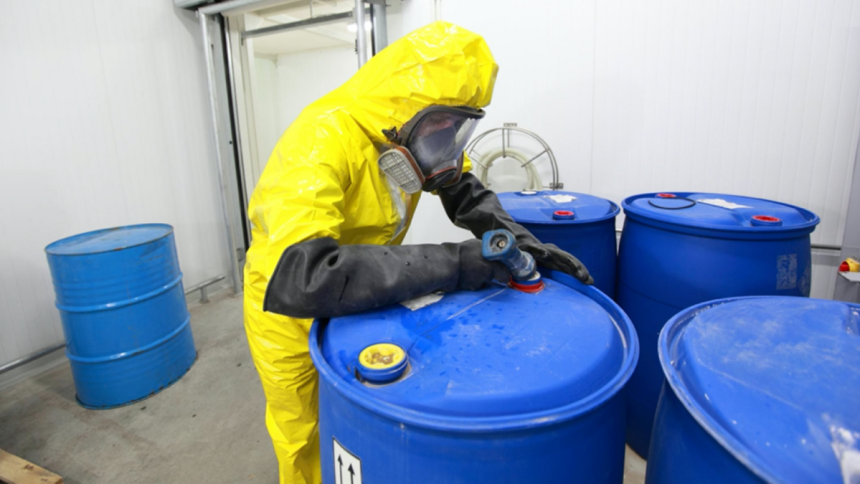There is always some risk, however slight, to one’s health and physical safety on the job. Even the most careful educator runs the risk of being physically harmed in the classroom. However, certain professions are intrinsically riskier than others; for example, those whose employment requires them to come into contact with hazardous substances are more likely to suffer from occupational injuries or illnesses. If you were exposed to chemicals on the job and are trying to decide whether or not to file a Workers’ Compensationclaim, here is some information that may help you decide:
Have You Been Harmed By The Chemicals?
Chemical compounds pose an immediate threat to everyone who comes into contact with them on the job. Bleach, for instance, is extremely harmful to the eyes and can kill nerve and tissue cells if it gets in them. One’s skin can suffer severe chemical burns from contact with bleach as well.
You should contact your employer right away and start the process of obtaining workers’ compensation benefits if you have sustained an immediate and acute injury as a consequence of exposure to a chemical while on the job and in the course of your employment.
Could Occupational Illnesses Be Caused by Chemical Exposure?
Exposure to a (chemical) substance in the workplace may not immediately result in an injury, but it may play a role in the later development of a significant disease or condition. Diesel exhaust, manganese (found in welding rods), asbestos, wood dust, solvents, and a wide variety of other materials and hazardous substances, for instance, have been linked to an increased risk of cancer, respiratory illness, and liver and kidney failure in workers. Subsequent exposure to a chemical can cause chronic, or long-term, consequences.
If you have been diagnosed with an occupational condition by a medical professional and can provide documentation of your illness, you may be eligible for workers’ compensation payments. Workers’ compensation law in Iowa, codified under Chapter 85A, extends coverage to employees who have a sickness “arising out of and in the course of employment” (OID).
If you’ve been exposed to chemicals on the job but haven’t shown any evident symptoms, you won’t be able to file a claim for damages related to your exposure. You need to show that you were hurt or became sick from being exposed.
Lynn Martelli is an editor at Readability. She received her MFA in Creative Writing from Antioch University and has worked as an editor for over 10 years. Lynn has edited a wide variety of books, including fiction, non-fiction, memoirs, and more. In her free time, Lynn enjoys reading, writing, and spending time with her family and friends.















